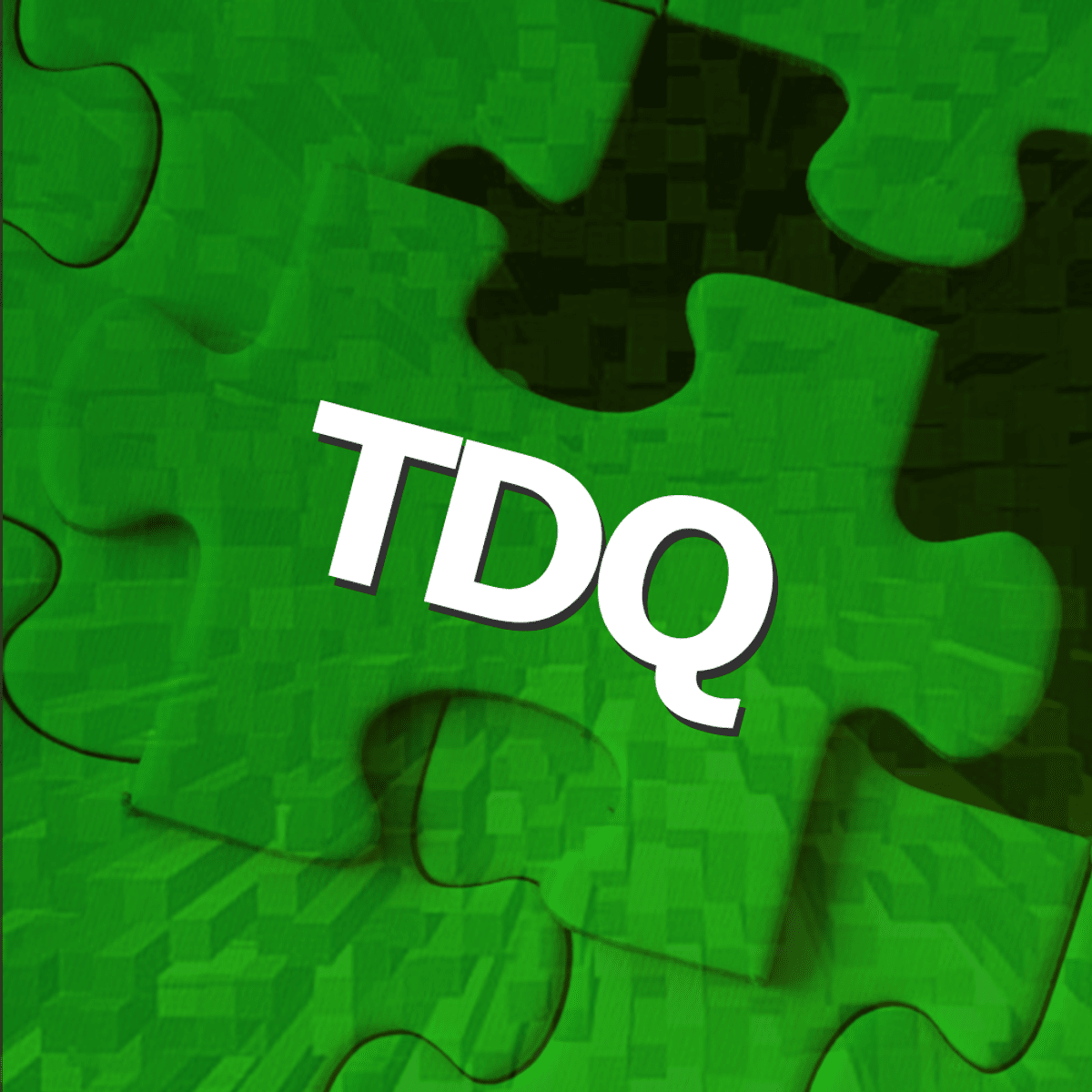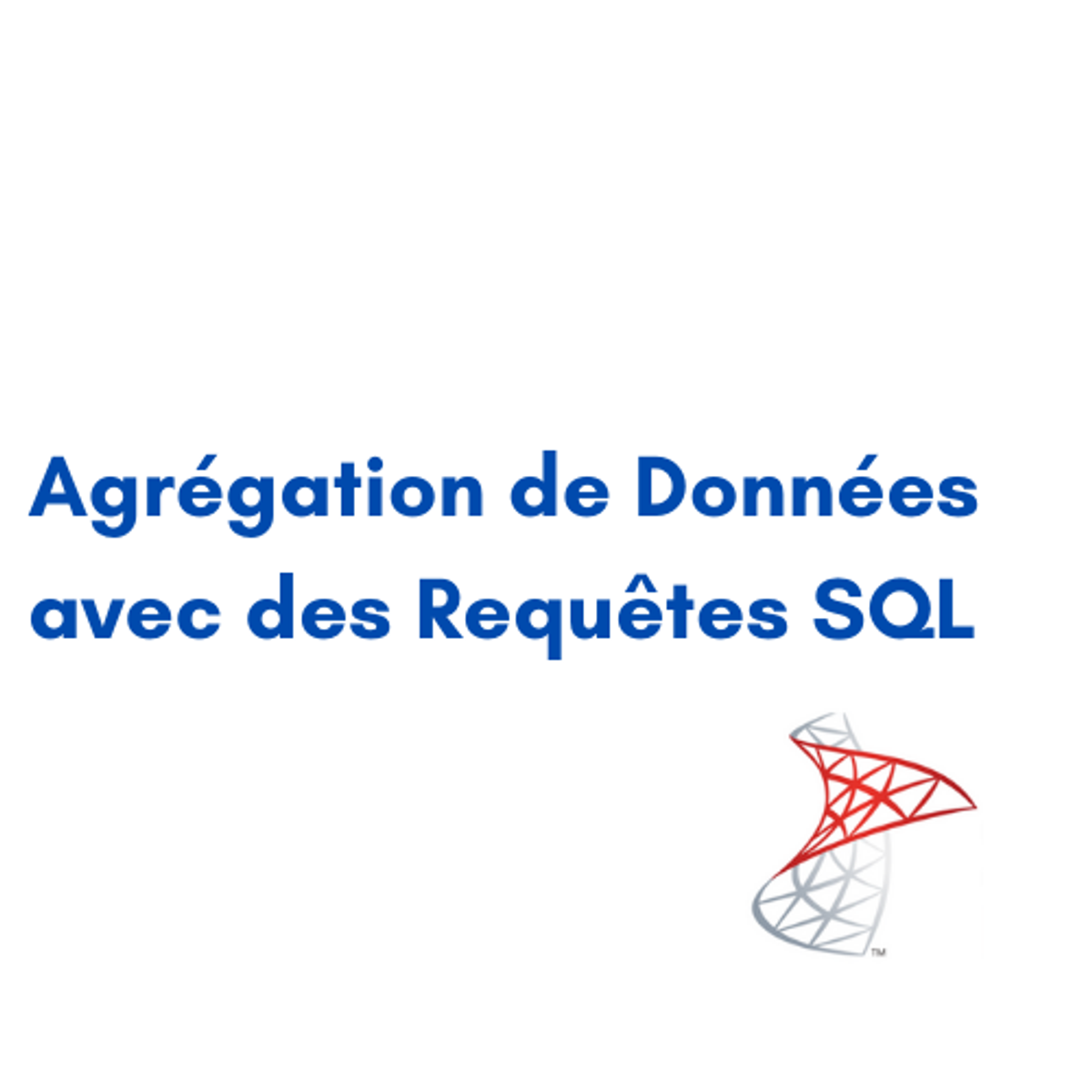Chief Data Officer
Chief Data Officer (CDO): Leading the Data Revolution
The Chief Data Officer, or CDO, is a senior executive responsible for an organization's enterprise-wide data and information strategy, governance, control, policy development, and effective exploitation. Think of the CDO as the primary champion and steward of a company's data assets, ensuring they are treated as valuable resources that drive business value, manage risk, and enable innovation.
Working as a CDO can be incredibly dynamic. You might find yourself shaping how data informs critical business decisions, pioneering new ways to leverage data for competitive advantage, or navigating the complex ethical landscape of data use. It's a role that blends strategic vision with technical understanding and strong leadership.
Introduction to Chief Data Officer (CDO)
Defining the Role and Its Purpose
A Chief Data Officer (CDO) holds a strategic leadership position, typically reporting high up in the organizational structure, often to the CEO or another C-suite executive. Their core purpose is to maximize the value derived from the organization's data. This involves establishing a clear vision for data management and usage across the entire enterprise.
The CDO oversees how data is collected, stored, managed, protected, and ultimately used to generate insights and drive decisions. They are responsible for creating and enforcing data governance policies, ensuring data quality, and fostering a data-driven culture throughout the company. This requires a unique blend of technical knowledge, business acumen, and leadership skills.
Essentially, the CDO acts as the bridge between the technical aspects of data management and the strategic goals of the business. They translate complex data concepts into actionable strategies that support growth, efficiency, and innovation, ensuring data becomes a core asset, not just a byproduct of operations.
The Rise of the CDO
The CDO role is relatively new compared to traditional executive positions like the CEO or CFO. Its emergence gained significant traction in the early 21st century, driven by the explosion of "Big Data" and the increasing recognition of data as a critical corporate asset. Initially prominent in data-intensive sectors like finance and insurance, the role quickly spread.
Organizations realized that simply collecting vast amounts of data wasn't enough; they needed dedicated leadership to manage it effectively and strategically. Compliance requirements, such as GDPR, also spurred the need for centralized data governance, further solidifying the CDO's importance. The focus shifted from mere data management to data strategy and monetization.
Today, CDOs are seen as crucial figures in digital transformation efforts. They help organizations navigate the complexities of data privacy, ethical AI, and advanced analytics, ensuring data strategies align with overall business objectives and evolving market demands. The role continues to evolve as data technologies and business needs change.
These books provide context on the importance of data strategy and the emergence of data-focused leadership roles.
Where are CDOs Found?
Initially concentrated in finance, insurance, and government sectors dealing with large volumes of sensitive information, the CDO role has now permeated almost every industry. Technology companies, managing vast user data and complex platforms, naturally employ CDOs to drive innovation and ensure robust data practices.
Healthcare organizations leverage CDOs to manage patient data securely, improve clinical outcomes through analytics, and navigate stringent regulations like HIPAA. Retailers use CDOs to understand customer behavior, optimize supply chains, and personalize marketing efforts. Even manufacturing and energy sectors increasingly rely on CDOs to harness data from IoT devices and optimize operations.
Public sector organizations, from federal agencies to city governments, appoint CDOs to improve service delivery, enhance transparency, and make data-informed policy decisions. The ubiquity of the role underscores the universal importance of strategic data management in today's economy.
This course explores how data intelligence serves organizations across various sectors.
Distinguishing the CDO from CIO and CTO
While there can be overlap, the CDO role is distinct from the Chief Information Officer (CIO) and Chief Technology Officer (CTO). The CIO typically focuses on the IT infrastructure, systems, and technology operations required to run the business efficiently and securely. Their concern is often the technology plumbing.
The CTO usually concentrates on the external-facing technology strategy, product development, research, and innovation. They look at how technology can be leveraged to create new products or services or enhance existing ones. Their focus is often on engineering and technological advancement.
The CDO, in contrast, focuses specifically on the data itself as a strategic asset. Their primary concern is the governance, quality, usability, security, and strategic application of data across the organization, irrespective of the specific systems (CIO) or product technologies (CTO) involved. Collaboration between these roles is crucial, but their core mandates differ significantly.
Core Responsibilities of a Chief Data Officer
Data Governance and Compliance
A fundamental responsibility of the CDO is establishing and overseeing data governance frameworks. This involves defining policies, standards, and processes for how data is created, collected, stored, accessed, used, and protected throughout its lifecycle. The goal is to ensure data is accurate, consistent, secure, and readily available for authorized use.
Data governance includes defining data ownership, stewardship roles, and accountability structures. It also involves managing metadata (data about data) to improve understanding and usability. Robust governance helps break down data silos and promotes a shared understanding of data assets across departments.
Furthermore, the CDO ensures the organization complies with relevant data privacy regulations (like GDPR, CCPA) and industry-specific rules. This involves working closely with legal and compliance teams to implement necessary controls, conduct audits, and manage data-related risks effectively.
These courses provide foundational knowledge in data strategy, management, and governance, essential for any aspiring CDO.
This course specifically addresses data protection laws, a critical aspect of compliance.
Strategic Data Use and Monetization
Beyond governance, the CDO plays a key role in developing strategies to leverage data for business value. This might involve identifying opportunities to improve operational efficiency, enhance customer experiences, develop new products or services, or even directly monetize data assets where appropriate and ethical.
The CDO works with business units to understand their goals and identify how data analytics, business intelligence, and increasingly, artificial intelligence (AI) and machine learning (ML), can help achieve them. They champion initiatives that turn raw data into actionable insights that drive strategic decisions.
Developing a data monetization strategy requires careful consideration of ethical implications, privacy regulations, and market feasibility. The CDO must balance the potential revenue or value generation with the risks and responsibilities associated with using sensitive information.
These resources delve into creating value from data and developing overarching data strategies.
Fostering Data-Driven Decision-Making
A crucial aspect of the CDO's role is cultivating a data-driven culture throughout the organization. This involves promoting data literacy, enabling access to relevant data and tools, and encouraging employees at all levels to use data to inform their decisions.
The CDO collaborates extensively with leaders across various departments (e.g., Marketing, Sales, Operations, Finance, HR) to understand their data needs and challenges. They work to break down departmental silos and ensure that data flows smoothly and is used consistently across the organization.
This requires strong communication, influence, and change management skills. The CDO must advocate for the value of data, demonstrate its impact through successful use cases, and provide the necessary training and support to empower employees to become more data-savvy.
These courses focus on the skills needed to make evidence-based decisions and lead data-driven initiatives.
Data Risk Management
Managing data-related risks is paramount for a CDO. This includes safeguarding sensitive information against breaches, ensuring compliance with privacy laws, and mitigating ethical risks associated with data use, particularly with AI and machine learning applications.
The CDO works closely with the Chief Information Security Officer (CISO) and legal teams to establish robust data security measures and incident response plans. They oversee data classification, access controls, and data retention policies to minimize exposure.
Ensuring data quality and accuracy is also a form of risk management, as poor-quality data can lead to flawed analysis and bad business decisions. The CDO implements processes for data quality monitoring and remediation, building trust in the organization's data assets.
This course explores the intersection of Generative AI and data privacy, a growing area of concern.
Formal Education Pathways
Undergraduate Foundations
While there isn't one single prescribed undergraduate degree for aspiring CDOs, several fields provide a strong foundation. Degrees in Computer Science, Information Systems, or Software Engineering build crucial technical understanding of databases, data structures, and system architecture.
Alternatively, degrees in Statistics, Mathematics, or Economics develop the analytical and quantitative reasoning skills vital for interpreting data and understanding complex models. Business-focused degrees, such as Business Analytics, Management Information Systems (MIS), or Finance, provide context on how data applies to organizational strategy and operations.
Regardless of the specific major, coursework emphasizing data analysis, database management, statistics, and programming is highly beneficial. Strong communication and critical thinking skills, often honed through humanities and social science courses, are also essential for leadership roles.
Graduate Studies and Specialization
Many CDOs hold advanced degrees that deepen their expertise. A Master's degree in Data Science, Business Analytics, or Information Management offers specialized knowledge in advanced analytics, machine learning, data warehousing, and data strategy implementation.
An MBA (Master of Business Administration), particularly with a concentration in technology management, analytics, or strategy, can be valuable for developing leadership capabilities and understanding the broader business context. This path is often pursued by those transitioning from technical roles or aiming for senior executive positions.
Some CDOs may come from quantitative backgrounds with Master's or PhD degrees in fields like Statistics, Operations Research, or Computer Science, especially in organizations where deep technical expertise in areas like AI research is critical.
This book provides insight into applying business intelligence, often covered in specialized graduate programs.
The Role of Doctoral Research
While not a common requirement, a PhD can be advantageous for CDO roles in highly specialized, research-intensive environments, such as large tech companies developing cutting-edge AI or research institutions. Relevant PhD fields include Computer Science (specializing in databases, AI/ML, data mining), Statistics, or Operations Research.
Doctoral research develops deep analytical skills, the ability to tackle complex, unstructured problems, and expertise in a specific domain. This background can be particularly valuable for CDOs tasked with leading data science teams pushing the boundaries of innovation or developing novel data methodologies.
However, for most CDO positions, extensive practical experience combined with a Bachelor's or Master's degree is more typical than a PhD. The emphasis is often on strategic leadership and execution rather than pure academic research.
Professional Certifications
Professional certifications can complement formal education and demonstrate specific expertise. While not always mandatory, they can enhance credibility and showcase commitment to the field. Relevant certifications often fall into data management, governance, security, or analytics categories.
Certifications like the Certified Data Management Professional (CDMP) offered by DAMA International cover a broad range of data management knowledge areas. Security-focused certifications like the Certified Information Systems Security Professional (CISSP) can be valuable given the importance of data protection.
Vendor-specific certifications related to major data platforms (e.g., AWS, Azure, Google Cloud) or analytics tools (e.g., Tableau, Power BI) can demonstrate technical proficiency. Project Management Professional (PMP) certification can also be useful for managing large-scale data initiatives.
Online Learning and Skill Development
Acquiring Essential Technical Skills
The path to a CDO role often requires a solid understanding of various data technologies, even if the role itself is strategic. Online courses offer flexible and accessible ways to build foundational and advanced technical skills. Key areas include data architecture principles, database management (SQL and NoSQL), data warehousing, and data integration (ETL/ELT processes).
Familiarity with cloud platforms (AWS, Azure, Google Cloud) and their data services is increasingly crucial. Foundational knowledge of Big Data technologies (like Hadoop, Spark) and the basics of Artificial Intelligence (AI) and Machine Learning (ML) concepts are also highly valuable for understanding modern data capabilities.
These courses offer introductions to relevant technologies often used in data-heavy environments.
Online platforms like OpenCourser aggregate thousands of courses, allowing learners to compare options and find resources tailored to their specific skill development needs. Many courses offer hands-on labs and projects to solidify learning.
Developing Leadership and Governance Expertise
Technical skills alone are insufficient for a CDO. Leadership, strategy, communication, and governance are equally, if not more, important. Online learning provides avenues to develop these competencies as well.
Courses focusing on data strategy, data governance frameworks, change management, digital transformation, and leadership skills are readily available. These programs help aspiring CDOs understand how to align data initiatives with business goals, build consensus, manage stakeholders, and lead data teams effectively.
Understanding risk management, data ethics, and privacy regulations is also critical. Specialized online courses cover these areas, preparing leaders to navigate the complex compliance and ethical landscape surrounding data.
These courses focus specifically on leadership in a data-driven context and data governance principles.
Building a Portfolio with Practical Projects
Theoretical knowledge gained through online courses is best complemented by practical application. Building a portfolio of projects demonstrates skills and initiative to potential employers, especially for those transitioning careers or lacking extensive formal experience.
Many online courses include capstone projects or guided projects that simulate real-world scenarios. Learners can tackle challenges related to data cleaning, analysis, visualization, building predictive models, or designing data governance policies for hypothetical organizations.
Independent projects are also highly valuable. This could involve analyzing publicly available datasets to derive insights, contributing to open-source data projects, or developing a small-scale data application. Documenting the process, challenges, and results clearly is key to showcasing capabilities.
These courses offer practical case studies and project-based learning opportunities.
Integrating Online Learning Effectively
Online learning can be a powerful supplement to formal education or a primary pathway for skill development. For students, online courses can deepen understanding of specific topics or provide practical skills not covered in traditional curricula. For working professionals, they offer a flexible way to upskill or prepare for a career pivot without leaving their jobs.
Success requires discipline and structure. It's helpful to set clear learning goals, create a schedule, and actively engage with the material through exercises and projects. Platforms like OpenCourser offer features like saving courses to a list (manage your list here) to help organize learning paths.
While online certificates can demonstrate completion, the tangible skills and portfolio projects developed are often more impactful for career progression. Balancing breadth (understanding the data landscape) with depth (mastering specific critical skills) is key when curating an online learning journey towards a CDO role.
Consider exploring the OpenCourser Learner's Guide for tips on structuring self-learning and making the most of online educational resources.
Career Progression to Chief Data Officer
Typical Feeder Roles
The path to becoming a CDO is varied, but typically involves significant experience in data-related fields. Common feeder roles include Director of Analytics, Head of Business Intelligence, Data Architect, Data Governance Manager, or senior Data Scientist/Engineer roles.
Individuals in these positions gain deep expertise in managing data assets, leading technical teams, developing analytical capabilities, or implementing governance structures. Experience in managing large-scale projects, budgets, and stakeholder relationships is crucial preparation for the executive level.
Progressing through roles with increasing responsibility within data management, analytics, or data strategy functions provides the necessary breadth and depth of experience. Demonstrating impact on business outcomes through data initiatives is key at each stage.
This guide offers practical advice on preparing for a career in data science, a common stepping stone.
The Importance of Mentorship and Sponsorship
Navigating the path to an executive role like CDO often benefits greatly from mentorship and sponsorship. Mentors can provide guidance, share insights from their own experiences, help identify skill gaps, and offer advice on career strategy.
Sponsors, who are typically senior leaders within the organization, play a more active role by advocating for an individual's advancement. They can help create visibility, identify high-impact opportunities, and champion the person for promotions or key roles.
Building a strong professional network both inside and outside the organization is essential for finding mentors and potential sponsors. Actively seeking feedback and demonstrating leadership potential are crucial steps in attracting this kind of support.
Bridging Technical and Business Backgrounds
CDOs often come from either a technical background (e.g., IT, data engineering, data science) or a business background (e.g., strategy, finance, marketing analytics). Both paths require acquiring skills from the other side to be effective.
Individuals with technical backgrounds need to develop strong business acumen, strategic thinking, financial literacy, and communication skills to effectively translate data insights into business value and influence senior leadership. Pursuing an MBA or targeted business courses can be beneficial.
Those from business backgrounds must gain sufficient understanding of data technologies, architecture, governance principles, and analytical methods to lead data strategies credibly and oversee technical teams. Taking courses in data science fundamentals, data management, or specific technologies can bridge this gap.
This book focuses on the intersection of data science and business strategy.
These courses help bridge the gap between technical data skills and business application.
Global Variations and Timelines
The timeline to reach a CDO position varies significantly based on individual career trajectory, company size and structure, industry, and geographic region. In general, it requires substantial experience, often 10-15 years or more in relevant fields.
In mature markets with a longer history of data focus (like the US or parts of Europe), the path might be more established, but also potentially more competitive. In emerging markets, the CDO role might be newer, offering opportunities but perhaps with less defined career ladders.
Industry norms also play a role. Tech and finance may have different expectations or progression speeds compared to manufacturing or the public sector. Ultimately, demonstrating consistent leadership, strategic impact, and the ability to manage complex data challenges are the universal factors driving promotion to the CDO level.
Ethical Challenges for Chief Data Officers
Mitigating Bias in AI Systems
As organizations increasingly deploy AI and machine learning, CDOs face the critical ethical challenge of ensuring these systems are fair and unbiased. AI models trained on biased historical data can perpetuate or even amplify societal inequities in areas like hiring, lending, or facial recognition.
The CDO must champion processes for identifying and mitigating bias throughout the AI lifecycle, from data collection and model development to deployment and monitoring. This involves promoting diverse teams, using fairness assessment tools, ensuring transparency in model decision-making, and establishing clear accountability.
Addressing AI bias requires not only technical solutions but also a strong ethical framework and organizational commitment. The CDO plays a key role in fostering awareness and driving the implementation of responsible AI practices.
These courses and book address the crucial topic of ethics in AI and data science.
Balancing Innovation with Privacy
CDOs often operate at the intersection of data-driven innovation and data privacy regulations. There is a constant tension between leveraging data for new insights, products, or services and protecting individual privacy rights as mandated by laws like GDPR or CCPA.
Navigating this requires a deep understanding of privacy principles (like data minimization, purpose limitation) and privacy-enhancing technologies. CDOs must ensure that data strategies incorporate 'privacy by design,' embedding privacy considerations from the outset of any new initiative.
This involves close collaboration with legal and compliance teams, conducting privacy impact assessments, and ensuring that data usage aligns with user consent and regulatory requirements. The goal is to foster innovation responsibly, building customer trust by demonstrating respect for their data.
This course explores data's potential while acknowledging risks, touching on the societal contract around data.
Ensuring Transparency in Data Use
Transparency regarding how an organization collects, uses, and shares data is crucial for building trust with customers, employees, and regulators. CDOs are responsible for developing and communicating clear data usage policies.
This includes making privacy policies easily understandable and providing individuals with mechanisms to access, control, or delete their data where applicable. Internally, transparency means ensuring clarity around data lineage, quality, and the logic behind analytical models, particularly those used for automated decision-making.
Lack of transparency can lead to reputational damage, regulatory penalties, and loss of customer loyalty. The CDO must champion a culture of openness about data practices, balancing business needs with ethical obligations.
Learning from Ethical Dilemmas
The field of data ethics is constantly evolving, and CDOs will inevitably encounter complex ethical dilemmas with no easy answers. Analyzing real-world case studies and hypothetical scenarios helps prepare leaders to navigate these gray areas.
Examples might include decisions about using sensitive data for marketing, deploying AI in ways that could impact employment, or balancing personalization with potential manipulation. Discussing these cases helps develop ethical reasoning skills and establish principles for decision-making.
Creating forums for ethical discussion within the organization and staying informed about emerging ethical guidelines and best practices are important responsibilities for the CDO. Learning from past mistakes, both internal and external, is crucial for continuous improvement in ethical data stewardship.
Industry Trends Impacting Chief Data Officers
The Pervasive Influence of AI
The rapid advancement and adoption of Artificial Intelligence (AI), particularly generative AI, is profoundly impacting the CDO role. AI increases both the potential value derived from data and the complexity of managing it ethically and effectively.
CDOs must now develop strategies not just for traditional analytics but also for deploying and governing AI systems. This includes ensuring data readiness for AI, managing AI model lifecycles, assessing AI risks (including bias and privacy), and integrating AI capabilities into business processes. According to research from McKinsey, generative AI is rapidly moving from experimentation to adoption, demanding strategic oversight.
The need for data governance becomes even more critical in the age of AI to ensure responsible development and deployment. CDOs are central figures in shaping their organization's AI strategy and ensuring it aligns with ethical principles and business objectives.
These courses explore AI strategy and its application in business.
Evolving Regulatory Landscapes
The global regulatory environment for data privacy and AI is becoming increasingly complex. Regulations like the EU's GDPR set precedents, followed by laws like California's CCPA/CPRA and emerging frameworks like the EU AI Act.
CDOs must stay abreast of these evolving regulations across different jurisdictions where their organization operates. Ensuring compliance requires significant effort in adapting data governance policies, technical controls, and business processes. Non-compliance carries substantial financial and reputational risks.
This regulatory pressure reinforces the strategic importance of the CDO role, as organizations need dedicated leadership to navigate this complexity and embed compliance into their data practices.
Consider exploring resources from regulatory bodies or reputable legal sources for detailed information on specific acts like the EU AI Act.
Expanding Demand Beyond Tech
While the CDO role originated in data-intensive sectors like finance and tech, demand is rapidly growing across a much broader range of industries. Healthcare, government, retail, manufacturing, and education are increasingly recognizing the need for strategic data leadership.
This expansion is driven by digital transformation efforts across all sectors. Organizations are seeking to leverage data for operational improvements, better customer engagement, and data-informed decision-making, regardless of their core business. This trend creates more diverse opportunities for aspiring CDOs.
The specific challenges and priorities may differ by sector – healthcare focusing on patient privacy and clinical outcomes, manufacturing on IoT data and operational efficiency – but the core need for data strategy, governance, and leadership remains consistent.
These courses showcase data applications in specific non-tech sectors like healthcare and government.
Economic Climate and Data Investments
Economic conditions inevitably impact investments in data initiatives. During downturns, organizations may scrutinize spending, requiring CDOs to more rigorously justify the ROI of data projects and potentially prioritize initiatives with clear, short-term benefits.
However, the long-term trend recognizes data as essential for competitiveness, meaning strategic data initiatives often remain priorities even in tighter economic climates. CDOs must be adept at demonstrating the value of data programs in terms of cost savings, efficiency gains, risk reduction, or revenue generation.
The ability to align data strategy with shifting business priorities and communicate its value effectively to executive leadership and finance departments is crucial, especially during periods of economic uncertainty.
This book provides a framework for thinking about data monetization and value.
Day-to-Day Challenges for Chief Data Officers
Securing Executive Buy-In
A significant ongoing challenge for CDOs is securing and maintaining buy-in from fellow executives and the board for data initiatives. Data programs often require substantial investment and can take time to show tangible results, demanding patience and trust from leadership.
CDOs must constantly articulate the strategic value of data, align initiatives with core business objectives, and communicate progress and ROI effectively. Building strong relationships with other C-suite members and understanding their priorities is essential for gaining support.
Overcoming skepticism or resistance to change often requires demonstrating early wins and showcasing how data directly addresses key business problems or creates new opportunities. Strong influencing and negotiation skills are paramount.
Integrating Legacy and Modern Systems
Many established organizations grapple with complex legacy IT systems alongside newer data platforms and technologies. Integrating data across these disparate systems to create a unified view is a major technical and operational challenge for CDOs.
Modernizing data infrastructure often involves migrating data to the cloud, implementing new data warehousing solutions, or adopting modern data integration tools. This requires careful planning, significant investment, and managing the risks associated with large-scale technology transitions.
The CDO must balance the need for modernization with the practical constraints of budget, resources, and minimizing disruption to ongoing operations. Strategic decisions about which systems to replace, integrate, or maintain are critical.
These resources cover data integration and working with different data systems.
Measuring the ROI of Data
Quantifying the return on investment (ROI) for data initiatives can be challenging. While some projects might yield direct cost savings or revenue increases, the benefits of improved data quality, better governance, or enhanced decision-making can be harder to measure directly in financial terms.
CDOs need to develop frameworks and metrics to track the impact of data programs, linking them as closely as possible to key business performance indicators (KPIs). This might involve measuring improvements in operational efficiency, customer satisfaction, speed to market, or risk reduction.
Communicating this value effectively, even when it's not purely financial, is crucial for justifying continued investment and demonstrating the strategic contribution of the data function.
This course focuses on data-driven decision making, implicitly touching on demonstrating value.
Talent Acquisition and Retention
The demand for skilled data professionals – including data scientists, engineers, analysts, and governance experts – often outstrips supply. Attracting, developing, and retaining top data talent is a significant challenge for CDOs.
Creating an attractive work environment, offering competitive compensation and benefits, providing opportunities for professional development, and fostering a compelling data vision are key elements of a successful talent strategy. CDOs must often compete with tech giants and startups for the best candidates.
Building internal talent pipelines through training and development programs can also be crucial. The CDO plays a leadership role in defining the necessary skills, structuring data teams effectively, and cultivating a culture that attracts and retains skilled professionals.
Frequently Asked Questions (Career Focus)
Is a technical background mandatory for CDO roles?
While a deep technical background isn't always mandatory, a strong understanding of data concepts, technologies, and architecture is essential. Some CDOs come from business backgrounds but have acquired significant data literacy and technical understanding throughout their careers.
However, credibility with technical teams and the ability to make informed decisions about data infrastructure and strategy often require more than just surface-level knowledge. The ideal background often blends technical depth with strong business acumen and leadership skills.
Ultimately, the specific requirements depend on the organization's needs and the existing strengths within the leadership team. An ability to grasp technical complexities and communicate effectively about them is crucial, regardless of the initial career path.
How does CDO compensation compare to other C-suite positions?
CDO compensation varies widely based on industry, company size, location, and the individual's experience and scope of responsibility. Generally, CDO salaries are competitive within the executive ranks, reflecting the strategic importance of the role.
While perhaps not always reaching the levels of a CEO or top-tier CFO in the largest corporations, CDO compensation packages (including base salary, bonuses, and equity) are typically substantial. According to sources like the Robert Half Salary Guide, experienced data leaders command significant salaries, often comparable to other C-level technology executives like CIOs or CTOs, though specific figures fluctuate.
As the role continues to gain prominence and demonstrate clear value, compensation levels are likely to remain strong and potentially increase, especially for CDOs with proven track records of driving data-driven transformation.
Can CDO experience lead to CEO opportunities?
While not the most traditional path, experience as a CDO can potentially lead to CEO opportunities, particularly in data-centric organizations or industries undergoing significant digital transformation. The CDO role provides broad exposure to strategic decision-making, cross-functional leadership, and driving business value.
A CDO who successfully transforms an organization's relationship with data, demonstrates strong strategic vision, financial acumen, and exceptional leadership skills could be a viable candidate for the top job. The key is leveraging the CDO platform to demonstrate impact across the entire business, not just within the data function.
However, it's more common for CDOs to move into other senior executive roles (like COO or Chief Digital Officer) or take on broader transformation leadership positions before potentially ascending to CEO.
Do startups hire CDOs?
While very early-stage startups might not have a dedicated CDO due to resource constraints, growth-stage startups, particularly those whose business models are heavily reliant on data (e.g., fintech, healthtech, AI startups), increasingly hire CDOs or equivalent senior data leaders.
In startups, the role might be more hands-on initially, combining strategic leadership with direct involvement in building data infrastructure and analytics capabilities. The focus is often on establishing foundational data governance, building scalable data platforms, and quickly leveraging data for product development and market traction.
As startups mature and scale, the need for formal data strategy and governance intensifies, making the CDO role more critical. The title might vary (e.g., Head of Data, VP of Data), but the function becomes essential.
How can aspiring CDOs demonstrate leadership potential?
Demonstrating leadership potential involves going beyond technical execution. Aspiring CDOs should seek opportunities to lead projects, mentor junior team members, and present data insights to business stakeholders. Taking initiative to identify data-driven solutions to business problems is key.
Developing strong communication skills – being able to explain complex data concepts clearly to non-technical audiences – is crucial. Building cross-functional relationships and demonstrating an understanding of broader business strategy are also important.
Volunteering for challenging assignments, seeking feedback proactively, and pursuing leadership training (perhaps through online courses or workshops) can further showcase commitment and develop necessary competencies. Ultimately, it's about showing strategic thinking, influence, and the ability to drive results through data.
This handbook offers management insights relevant for aspiring data leaders.
What are typical career exit paths for former CDOs?
Former CDOs have several potential career paths. Some leverage their strategic and leadership experience to move into broader executive roles within the same or different organizations, such as Chief Operating Officer (COO), Chief Digital Officer, or even CEO, as discussed earlier.
Others may transition into consulting roles, advising multiple organizations on data strategy, governance, and transformation. Starting their own data-focused consulting firm or tech startup is another possibility.
Some experienced CDOs move into board director positions, leveraging their expertise to provide oversight and guidance to other companies. Others might return to academia or join venture capital firms focusing on data and AI investments. The broad strategic exposure of the CDO role opens up diverse future opportunities.
Embarking on the path toward becoming a Chief Data Officer is a significant undertaking, requiring a blend of technical knowledge, strategic insight, and strong leadership. It's a challenging but rewarding career at the forefront of how modern organizations operate and compete. Whether you are starting your educational journey, developing skills online via resources like Data Science courses on OpenCourser, or pivoting from another field, building a strong foundation in data principles, governance, and strategy is key. While the journey demands dedication, the opportunity to shape an organization's future through the power of data makes it a compelling ambition for many driven individuals.

































